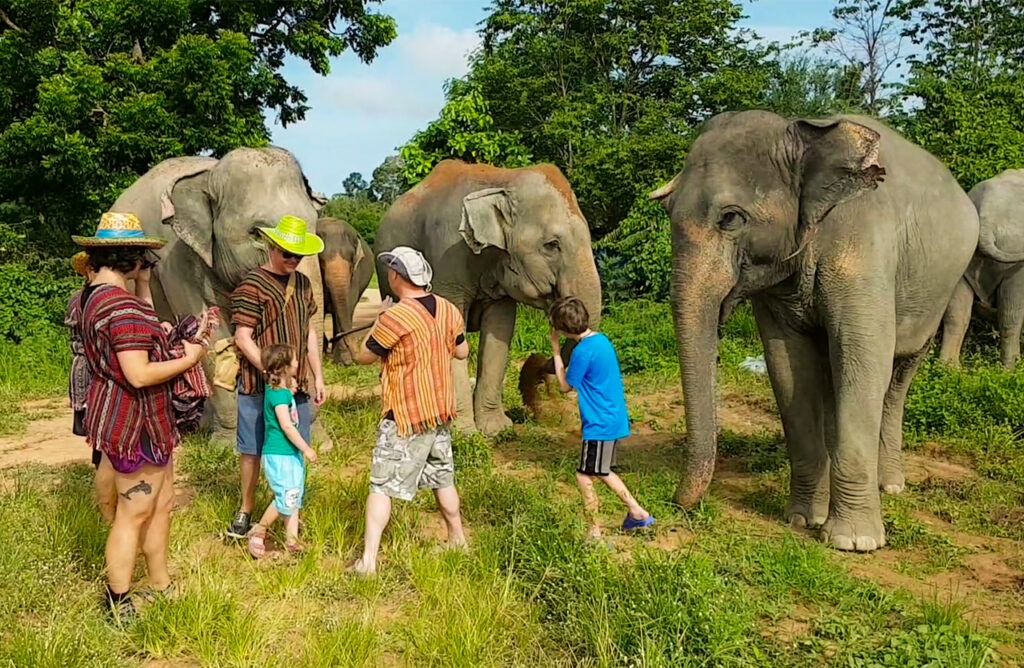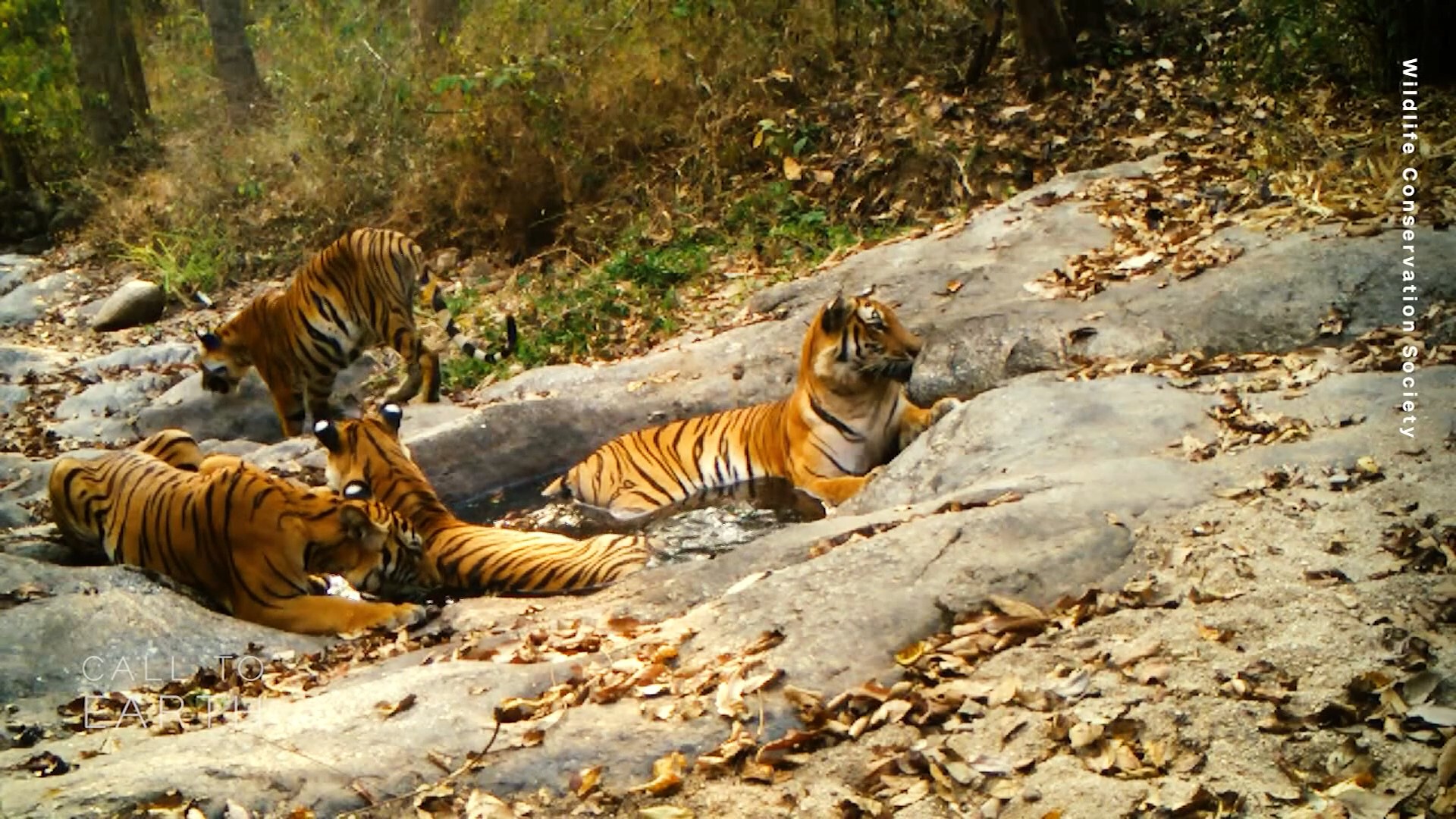Have you ever dreamed of getting up close and personal with the wild animals of Thailand? From majestic elephants to playful monkeys, this country is home to a wide variety of unique and exotic species. But before you embark on your wildlife adventure, it’s important to understand the importance of ethical tourism. In this guide, we’ll delve into the dos and don’ts of wildlife encounters in Thailand, ensuring that your experiences are not only enjoyable but also responsible.
Thailand is a popular destination for animal encounters, and it’s easy to see why. The opportunity to see these incredible creatures up close is truly unforgettable. However, it’s crucial to choose ethical wildlife experiences that prioritize the welfare and conservation of the animals. In our article, we’ll explore the different types of wildlife encounters available in Thailand, shedding light on which ones are sustainable and which should be avoided.
You might be wondering, how can I ensure that the wildlife encounters I participate in are ethical? Well, fear not! Our guide will provide you with practical tips and advice on how to choose responsible operators, how to spot signs of animal abuse, and how to support organizations that are making a positive impact. So, whether you’re planning a trip to Thailand or simply want to educate yourself on responsible tourism, this article is a must-read. Stay tuned to learn more about ethical tourism and wildlife encounters in Thailand! Thailand is known for its diverse and magnificent wildlife, attracting tourists from all over the world. From lush rainforests to pristine beaches, the country offers a plethora of opportunities to experience the wonders of nature up close. However, with the rapid growth of tourism, it is imperative to ensure that wildlife encounters are conducted ethically and responsibly. This article serves as a guide to ethical wildlife tourism in Thailand, highlighting the importance of conservation efforts, responsible travel practices, and popular wildlife encounters.

Thailand’s Diverse Wildlife
Thailand boasts a rich biodiversity, with a wide range of species inhabiting its varied ecosystems. From majestic elephants and elusive big cats to exotic birds and colorful marine life, the country is a treasure trove of wildlife. With over 127 national parks and protected areas, Thailand offers ample opportunities for nature lovers to explore and appreciate the beauty of its fauna.
Endangered Species in Thailand
Unfortunately, Thailand is also home to several endangered species that face numerous threats. Species such as the Asian elephant, Indochinese tiger, Malayan sun bear, and Siamese crocodile are just a few of the many endangered animals found in Thailand. Illegal wildlife trade, habitat loss, and poaching pose significant challenges to their survival.
Conservation Efforts in Thailand
To combat the threats faced by endangered species, Thailand has implemented various conservation efforts. The Department of National Parks, Wildlife and Plant Conservation (DNP) plays a pivotal role in protecting and managing the country’s natural resources. Collaborative initiatives between government agencies, non-profit organizations, and local communities have led to the establishment of wildlife sanctuaries and conservation projects across the country.
Understanding Ethical Wildlife Tourism
Ethical wildlife tourism entails promoting the welfare and conservation of animals while offering tourists an educational and memorable experience. It requires adhering to the principles of responsible travel and ensuring that interactions with wildlife are conducted in a manner that minimizes stress and disruption to the animals’ natural behaviors.

Responsible Travel in Wildlife Encounters
When encountering wildlife in Thailand, it is crucial to choose operators and tour providers that prioritize animal welfare and conservation. Look for organizations that promote sustainable practices, such as limiting group sizes, maintaining a respectful distance from animals, and providing educational information about the species and their habitats. Avoid activities that involve physical contact with animals, such as riding elephants or swimming with dolphins, as these often involve exploitation and harm to the animals.
Supporting Sustainable Wildlife Initiatives
By participating in ethical wildlife encounters, you can support sustainable wildlife initiatives and contribute to the conservation of Thailand’s natural heritage. Choose operators that invest in the local communities, support conservation projects, and prioritize responsible practices. By making informed choices and actively supporting these initiatives, you can help protect the wildlife and their habitats for future generations.

Elephant Sanctuaries and Responsible Elephant Tourism
Thailand is famous for its elephants, and many tourists are drawn to the opportunity to interact with these magnificent creatures. However, it is essential to choose elephant sanctuaries that prioritize the welfare and well-being of the elephants. Avoid establishments that offer elephant rides, as these often involve cruel training methods and harmful conditions for the animals. Instead, opt for sanctuaries that allow visitors to observe elephants in their natural habitats, participate in feeding and bathing them, and learn about their conservation status.
Observing Marine Life While Snorkeling or Diving
Thailand’s crystal-clear waters are home to an abundance of marine life, making it a popular destination for snorkeling and diving enthusiasts. When engaging in these activities, be mindful of the environment and the creatures you encounter. Never touch or disturb marine animals or their habitats, and never remove anything from the ocean, including shells or coral. Take care not to damage coral reefs and abide by responsible diving practices to minimize your impact on the delicate marine ecosystem.

Bird-Watching and Bird Conservation
Thailand is a paradise for bird enthusiasts, with over 1,000 species of birds recorded in the country. Bird-watching tours offer an incredible opportunity to observe these feathered wonders in their natural habitats. To ensure ethical bird-watching experiences, choose guides who prioritize bird conservation and respect for their habitats. Support local initiatives focused on bird conservation and learn about the threats facing migratory birds, such as habitat loss and climate change.
Animal Exploitation in Wildlife Tourism
Unfortunately, the growth of wildlife tourism has led to the exploitation of animals in various forms. Unethical practices, such as captive animal shows, where animals are trained to perform unnatural behaviors, and the use of animals for photo opportunities, often involve abuse and neglect. Avoid engaging in these activities and refuse to support establishments that exploit animals for entertainment purposes.

Negative Impacts of Unethical Wildlife Encounters
Unethical wildlife encounters can have severe negative impacts on animal welfare and conservation efforts. Animals kept in captivity or subjected to harmful practices often suffer physically and psychologically. Such encounters can perpetuate the demand for illegal wildlife trade, as tourists unknowingly contribute to a market fueled by cruelty and exploitation. It is essential to choose responsible wildlife encounters to ensure that your visit has a positive impact on the animals and their conservation.
Legal Regulations on Wildlife Tourism
Thailand has implemented legal regulations to combat animal exploitation and promote ethical wildlife tourism. The Wildlife Conservation and Protection Act prohibits the possession, trade, and exploitation of protected wild animals. These regulations aim to ensure that wildlife encounters in the country are conducted responsibly and do not contribute to the illegal wildlife trade.
Researching and Selecting Responsible Operators
Before participating in any wildlife encounters, it is crucial to conduct thorough research and select responsible operators. Look for accredited organizations that prioritize animal welfare, conservation, and community involvement. Read reviews and seek recommendations from trusted sources to ensure that your chosen operator aligns with ethical tourism practices.
Avoiding Direct Wildlife Interactions
To minimize disturbance to wildlife, it is essential to avoid direct interactions with animals, particularly those involving physical contact. Activities such as riding elephants, petting tigers, or holding wild animals for photo opportunities often involve cruel practices and jeopardize animal welfare. It is best to observe animals from a respectful distance and allow them to continue their natural behaviors undisturbed.
Supporting Conservation Projects
Supporting conservation projects is an excellent way to contribute to wildlife protection in Thailand. Many organizations and initiatives rely on funding and donations to carry out their crucial work. By supporting these projects financially or through volunteer opportunities, you can actively participate in conservation efforts and make a positive impact on wildlife and their habitats.
Community-Based Wildlife Tourism
Community-based wildlife tourism initiatives involve local communities in wildlife conservation and provide them with alternative sources of income. By supporting these initiatives, you can contribute directly to the well-being of local communities while promoting sustainable practices that benefit both wildlife and humans. Seek out community-based tourism experiences that prioritize environmental sustainability and engage with local communities respectfully and responsibly.
Education and Awareness Programs
Education and awareness programs play a vital role in promoting ethical wildlife encounters. By learning about the threats faced by wildlife and the importance of conservation, tourists can make informed choices and actively contribute to wildlife protection. Support organizations and initiatives that offer educational programs and engage with local communities to raise awareness about wildlife conservation.
Collaborative Partnerships for Wildlife Protection
Collaboration between government agencies, non-profit organizations, local communities, and the tourism industry is crucial for effective wildlife protection. By forging partnerships and working together, these stakeholders can develop sustainable solutions that promote responsible wildlife encounters while safeguarding the long-term conservation of Thailand’s biodiversity.
Respecting Wildlife and Their Natural Habitat
Respecting wildlife and their natural habitat is vital to the long-term survival of species. When encountering wildlife, maintain a respectful distance and avoid any actions that may disturb or stress them. Avoid littering and ensure that you leave no trace of your visit. By practicing responsible behavior and minimizing your impact on the environment, you can help preserve the integrity of wildlife habitats.
The Role of Local Communities in Wildlife Conservation
Local communities play a crucial role in wildlife conservation efforts. By involving communities in monitoring and protecting wildlife, we empower them to take ownership of their natural heritage. Supporting local initiatives that engage communities in conservation activities helps preserve traditional knowledge and practices, fostering a sense of pride and responsibility for the wildlife that inhabits their surroundings.
Educating Tourists on Ethical Wildlife Encounters
Educating tourists on ethical wildlife encounters is key to promoting responsible behavior. Tourism operators should provide information on ethical tourism practices, wildlife conservation, and the negative impacts of unethical encounters. By spreading awareness and encouraging responsible behavior among tourists, we can create a collective effort to protect wildlife and their habitats.
Enjoying Wildlife Encounters in an Ethical and Sustainable Way
With its diverse wildlife and breathtaking landscapes, Thailand offers incredible opportunities for wildlife encounters. By choosing ethical operators, supporting conservation initiatives, and practicing responsible travel, you can enjoy these experiences while actively contributing to the conservation of Thailand’s natural heritage.
Balancing Tourism and Wildlife Conservation
Finding a balance between tourism and wildlife conservation is crucial for the sustainable development of the travel industry. By prioritizing ethical practices and supporting initiatives that promote responsible wildlife encounters, we can ensure that future generations can continue to enjoy the beauty and wonders of Thailand’s wildlife.
Creating a Positive Impact Through Responsible Travel
Your choices as a traveler have the power to create a positive impact on wildlife and their habitats. By embracing ethical wildlife encounters, supporting conservation efforts, and promoting responsible behavior, you can contribute to the preservation of Thailand’s diverse wildlife for years to come.
In conclusion, wildlife encounters in Thailand can be a magical experience, provided they are conducted ethically and responsibly. By choosing ethical operators, supporting conservation initiatives, and respecting wildlife and their habitats, you can enjoy the beauty of Thailand’s wildlife while actively contributing to their protection. Let us strive to create a sustainable future where wildlife and tourism can coexist harmoniously.
